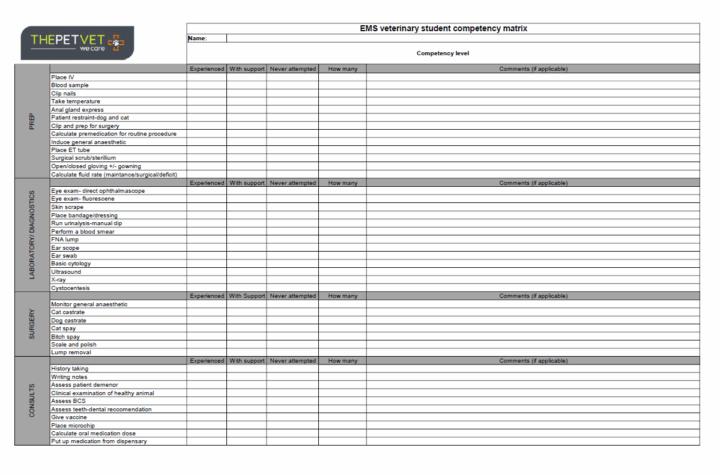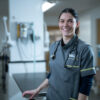Extramural studies (EMS) have been a cornerstone of veterinary education since 1932. These placements are spread across the degree course and range from non-clinical to clinical experiences, covering various species and disciplines. This diversity enables students to explore their interests and identify the sector they wish to enter after graduation.
EMS placements can be transformative: they can make or break a student’s confidence and enthusiasm. Some placements become environments to thrive in, while others feel like something to survive. But survival isn’t sustainable and, unfortunately, can lead to people leaving the profession prematurely. Many of us have been there, counting down the days on a difficult placement, whether due to the people, the caseload or the environment. In contrast, a fulfilling placement supports growth, progression and well-being.
The importance of a supportive EMS placement environment
Supportive EMS programmes enable both personal and professional development
That’s why we must give students the support and guidance needed to navigate the transition into professional life. These students are the future of our profession – soon to be on the RCVS register, proudly adding MRCVS after their names.
Finding quality EMS placements can be challenging. However, tools such as internal university placement logs and the RCVS EMS National Booking Database are helping to open doors to previously unknown opportunities.
Supportive EMS programmes enable both personal and professional development. At The Pet Vet, we’ve created an EMS skills matrix (Figure 1), completed before the placement and used as a discussion tool with the EMS lead throughout the student’s time with us. This not only helps track progression but opens a dialogue about the student’s goals and how they’re getting on.

This approach has been so successful that we now use it as part of our EMS Sponsorship Scheme – a distinctive alternative to traditional new graduate programmes. It allows us to nurture and develop students into the confident, capable graduates our practices need. From the student’s perspective, it removes uncertainty and the stress of job hunting. They complete all small animal placements with us during their fourth and fifth years, becoming familiar with our team, systems and culture. They attend clinical meetings, gain experience with routine surgeries and vaccine clinics, and start to feel truly part of the practice.
It removes the “unknown” from what is already a daunting time. Being a new graduate is stressful enough without also having to figure out where equipment is kept, what medicines are stocked or who to ask for help.
Offering a clear pathway
We all remember the anxiety of entering fifth year and the dreaded questions: How will I find a job? How do I know if it’s the right one? In the past, many vet students returned to a local practice where they’d grown up. Today, students want to explore, live in new places and often don’t “move back home”.
Our EMS Sponsorship Scheme offers a home-from-home, with accommodation available at most surgeries to support relocation. It creates confident, well-prepared graduates who understand our ethos and transition seamlessly into our graduate development programme (GDP). They’re introduced to our GDP lead as early as the spring of their final year, so they have a clear support pathway post-graduation.
Being a new graduate is stressful enough without also having to figure out where equipment is kept, what medicines are stocked or who to ask for help
In addition to the emotional and educational support, the scheme provides financial stability, with £5,000 paid in instalments over the fourth and fifth years. This helps reduce the burden of part-time work and allows students to focus on exams, rotations and developing into the professionals they aspire to be.
Lauren Fielding, EMS student at The Pet Vet Rotherham, says: “Having an EMS sponsorship significantly helped some of the challenges of vet school. Like many students, I struggled with the stress of finding quality placements while managing additional costs and balancing clinical experience with academic demands.
“Being offered a paid, guaranteed EMS placement provided financial support and stability, allowing me to focus fully on developing my clinical skills. Returning to the same practice regularly has been particularly beneficial to me. Becoming more familiar with the team and environment has created a supportive learning space where I feel comfortable asking questions and taking on new responsibilities to progress into a confident vet.”







